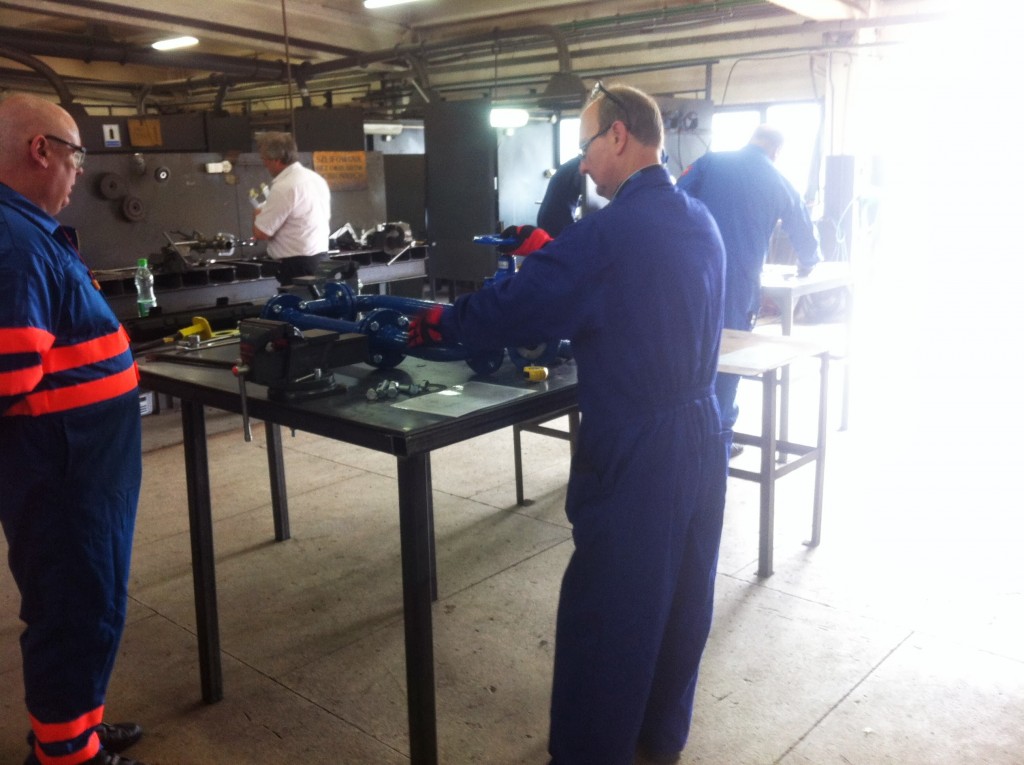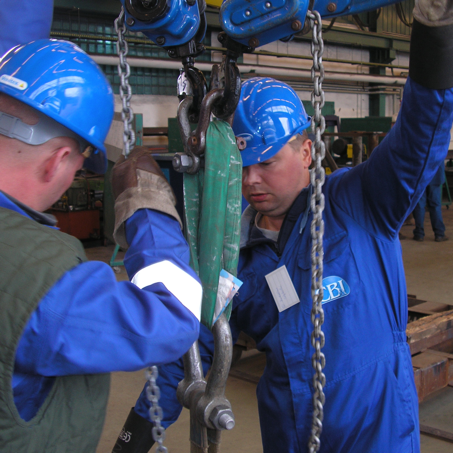The Annual Spring Shutdown at Grangemouth Oil Refinery
Canterbury: During the Spring months of April and May, Central European Staffing (CES) qualified tradesmen completed yet another project for a client who is a leader in the engineering construction industry.

Trade tests for mechanical fitters, Warsaw, 2014
Thirty-six CES pipe and mechanical fitters performed their services during the annual shutdown at Grangemouth oil refinery. Refineries have an ongoing need for pipefitters, since piping is the vehicle through which oil is refined and transported.
As a pipefitter, your responsibilities include selecting the correct pipe for any given application. For example, specifically sized piping is used to vaporize crude oil – a method for separating oil into various products such as gas. Mechanical Fitters might make on-site repairs or transport a damaged part of machine to a shop to complete their work.
Pipefitters work on projects where the diameter of the pipes can be large – sometimes taller than a person. Refinery pipefitters have the education and experience to design, build and install the piping needed to direct the movement of oil, water and steam.
A refinery pipefitter’s job includes building and ensuring the integrity of the pipes that will transport oil, gas or steam. This is achieved through many job functions, such as reading blueprints, using computer-aided design software to design piping layouts, threading pipes, welding, installing vents and valves and working with various tools for cutting, grinding, brazing and arc cutting.
Welding is an important part of this job and is employed to attach pipes to one another and create support structures, amongst other things. It can be a hazardous task. Refinery job can pose dangers from chemicals, explosions or falls, creating a need for pipefitters with experience.
Mechanical fitters are responsible for assembling, installing and repairing equipment in manufacturing settings. This equipment could include lathes, pumps and turbines.
It is important that mechanical fitters know how to use such tools as drills, grinders, welding equipment and various types of cutters to work on valves, pipes and motors. They replace worn machinery parts, make necessary repairs, adhere to a maintenance schedule for manufacturing equipment and make modifications to machines as needed.
This was the fourth CES project at this location in the last few years employing experienced fitters, who know the site well and are trained in their duties. They use a thorough knowledge of health and safety requirements in being major assets to the main contractor on site.
CES has a dedicated welfare officer, who coordinates logistics. This includes travel, car rental and accommodation. Now, we are looking forward to further successful projects with our client.
Having an extensive database of qualified tradesmen, including pipe and mechanical fitters, coded welders, riggers, platers and others, CES is ready for other projects in 2019 experiencing staff and skill shortages.






